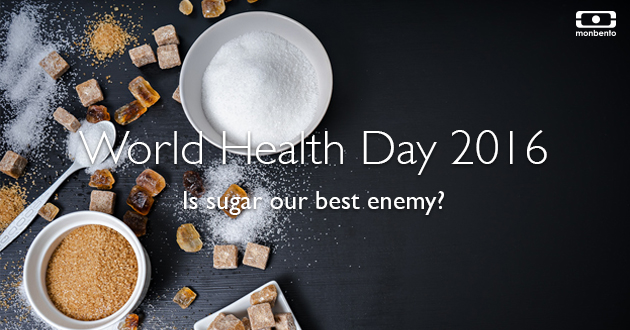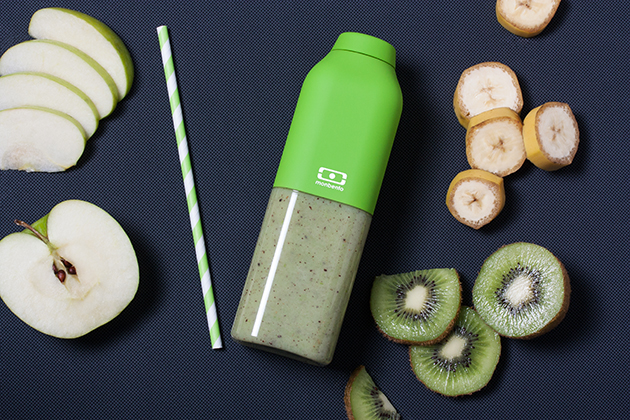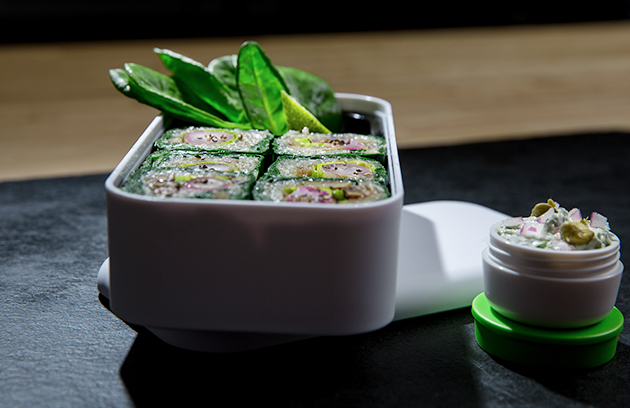
A chocolate with your coffee, a piece of cake at the morning break, a yummy dessert on Sunday lunch… Does it mean anything to you?
In addition to being part of our daily life, sugar is heartwarming, energizing and relates to happy moments for most of us. However, despite all its great aspects sugar consumption is increasing and often criticized because of its impact on our health. More specifically, diabetes is the core of the debates on this World Health Day.
Is our sugar consumption as high as it is said to be?
No doubt, all studies agree on this point: from 5kg per year and per inhabitants in 1850, we moved to 35kg. (Ooops !). No need to be mathematician to understand that we eat twice more sugar everyday than the WHO’s recommended portion (50gr). It does sound bad…
Where are sugars hidden?
Even if we are a sweet tooth, 100gr of sugar a day seems like HUUUGE! It’s just because in addition to sugar naturally present in our diets, as in fruits or milk for example, there are added sugars. Most of the time, when we think about added sugars, we have cakes or pastries in mind. However, did you know that we can also find them in ham, bread, tomato sauce and… low fat products?!
Why do we love sugar so much?
In fact, it’s not really our fault… (Aaah we feel better!) If we often choose a piece of cake instead of a plate of zucchini, it’s just because sugar is yummier, it releases endorphin (the well-being hormone) and it is 8 times more addictive than cocaine! (Now, we feel worried!) A 2007 American study on rats, and another one in 2013, on humans, confirmed it.
And icing on the cake (okay, that’s an easy one…): sugar calls for sugar.
Is it necessary to reduce our sugar intake?
High blood sugar (and only HIGH levels!) can be the starting point to some diseases that are not really welcoming: obesity, cardiovascular disorders, diabetes…
Troubles caused by diabetes have devastating impact on daily life: tiredness, numbness, irritation, sight and kidney problems, sexual issues… It also multiples risks of death by two!
Figures from latest studies[1] are particularly frightening:
– 422 million people are affected by diabetes in the world, that means
– 3 million people in France are diabetic
– The number of adults affected by this illness has been multiplied by 4 in only 35 years
– 1 child out of 3 born after 2000 has a chance to contract diabetes during his life
– Diabetes was known to be the cause of death for 1,5 million people in 2012
So, a little change in our food habits could be a good idea!
Which dietary practices should we favour?
1/ Reduce ready-made food
It’s easy and tasty but it’s full of added sugars. Even in salty food! Go over the labels carefully and keep as much as possible ready-made meals for emergency situations 😉
2/ Eating or drinking sugar: you must choose
Without noticing, we can reach high levels of sugar intake with just our drinks! A hot chocolate, a glass of soda and you’ve just added a dozen pieces of sugar to your day. You just have to be aware.
3/ “Burn” sugars
The great sunny days are coming up! It’s the best time to walk, to run, to ride your bike or to go for a swim! Same at home: be active and burn sugars by climbing stairs, playing with your children, dancing in front of your TV or even just cleaning the house!
4/ Start cooking
In order to know best what is in your plate (or in your bento ;-)), cooking for yourself is the best solution! Of course, no need to totally eradicate sugar (apart on medical restriction or diet!). The best way for “smart-cooking” when you love sweetness is to use products that contain natural sugars as seasonal fruits, honey or high-percentage cocoa chocolate.
Psst’… Feel free to have a look at the monbento mobile app to find some recipes! As sugar lovers, monbento members have their tips to cook 😉 We strongly advise you our 100% fruits smoothie with apples, kiwi and bananas!

Did you know?
For diabetics, “veggie” diets or diets with limited animal products as meat or milk, like those of Dr. T. Colin Campbell and Caldwell (Ohio) and Dr. Cousens (Arizona), have been successful.
If you are interested, veggie recipes, as the Veggy Makis with chards and radishes, are available on our apps.

[1] [1] Sources:
« Forks over knives », Lee Fulkerson
« A raw for thirty », LLC Production
http://www.who.int/fr/ (World Health Organization official website)
